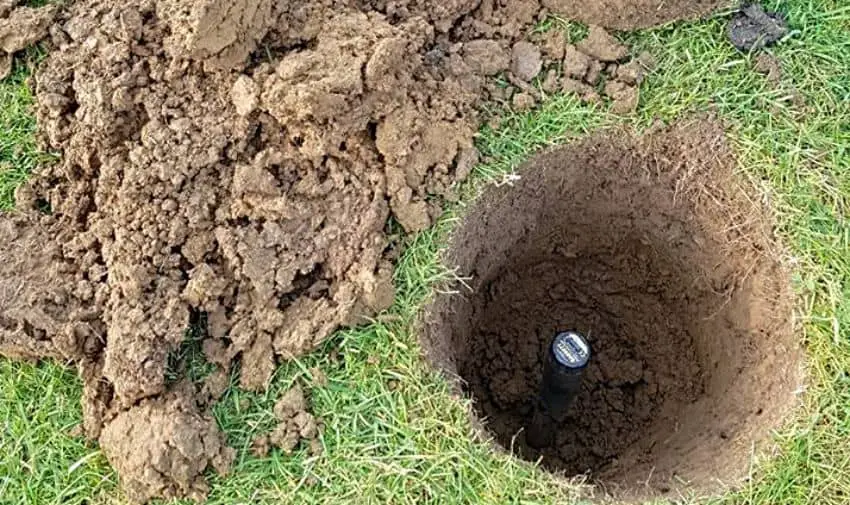
While swinging your beloved metal detector, there are tons of finds you could expect … One of them are obviously coins of all types! These are one of the most exciting target in my opinion, simply because each time you come across a coin you start asking checking how old it is and how valuable and rare it is, which is pretty cool …
… But first, can metal detectors detect coins? Yes! As far as these coins are made out of conductive metals such zinc, cupro-nickel, copper, gold, silver or even an alloy of some of these metals, your detector can easily pick them up quite easily and at significant depths underneath the ground.
In this article I dive pretty deeply in this topic … You will learn all the details, even the smallest ones, so you will be able to come up with coin finds, almost every single time you go out digging.
Best detector for coin shooting?
Don’t get me wrong, it a detection machine can’t find coins then this is not a detector by any means … All machines are supposed to do so!
However, the reality is, there are detectors that are just better picking up coins than others … As they are more adapted to do so regardless of the ground conditions …
… Below I list my favorite models thus far …
1. Garrett AT Pro (Best Choice for Coins!)
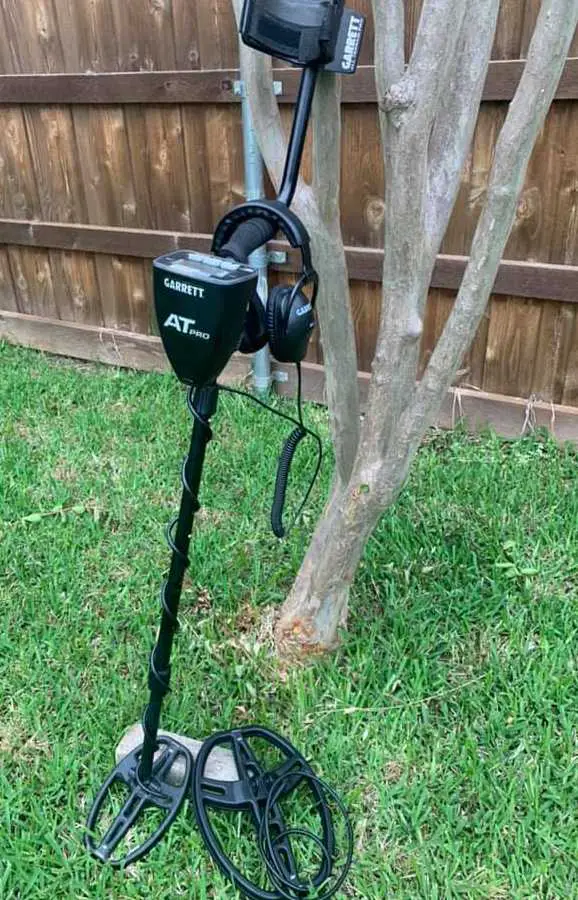
The Garrett AT Pro (Check it Here at Amazon) is a machine that has proven its efficiency over and over again. Yes, it is a classical model when it comes to the general look, but it is very easy to use and capable of providing you with some solid results …
… In fact, It is equipped with a fully waterproof 8.5 by 11 inch DD Searchcoil. This size is perfect if you want to cover a lot of terrains and still have a good depth that can go up to 12 inches …
… Such features and more are adapted to sense the presence of deeply buried coins that could hold good value.
If you go to any Forum, Group, Club and ask them about the best tool to pick up coins, I won’t be surprised if 90% have voted for the AT Pro.
2. Minelab Equinox 800 (My favorite machine overall)
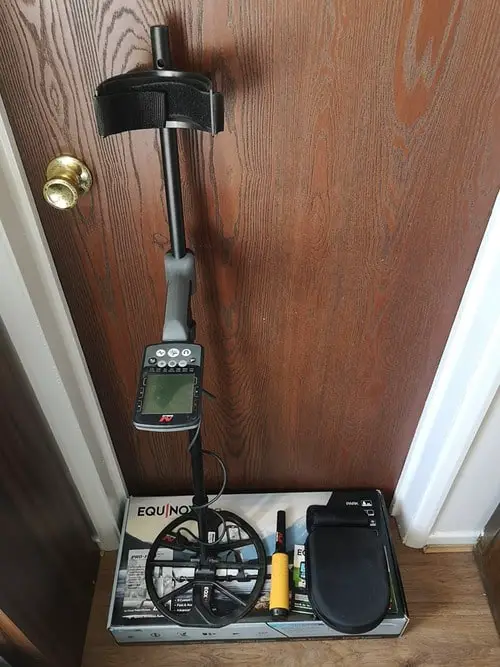
The Minelab Equinox 800 (Check it Here at Amazon) is designed for those who are serious about the hobby. It comes with the Multi-IQ technology AKA ability to operate simultaneously on multiple frequencies which will allow you to sense pretty much all possible finds at the same time (including coins of all sorts).
This ability comes with while filtering out trash! The frequencies it can operate on are 5, 10, 15, 20 and 40 kHz … This will allow you to go for Golden coins and nuggets!
3. Fisher Labs F75
The F75 (Check it Here at Amazon) is a well-known coin finder, for me personally, it is a very similar to the AT Pro.
If you maintain the automatic ground balancing and the default mode, then you will be set to work better for locating most types of coins.
There is a mineralization bar graph that will allow you to understand the ground better if you haven’t already, along with a 0-99 for target identification (This is generally a proportion to how conductive the metal is).
Finally, if you choose to use this model for coins, then I suggest to you to keep the default preset and play on the discrimination depending on how trashy the soil is.
How deep can metal detectors detect coins?
A good quality device can easily sense coins that are six to ten inches below the ground. However, the depth depends on several factors…
… The most critical factor is the ground condition that you are exploring. In fact, if you are searching in a clean environment like a field then your machine will reach its max nominal depth. Otherwise, if you are dealing with a trashy place like a Park, then chances are, you won’t be able to see coins to the max depth possible.
A way to deal with that is by setting a proper discrimination level … This is like if you tell your machine to ignore the trash on the surface to a certain extent and let me know if you see a non-ferrous target deeper!
The sensitivity setting plays a good role too. In fact, if it is set pretty high, then even smaller coins can be found at a considerable depth.
On a side note, keep in mind that if the ground is wet (after rain for example), then this increases the conductivity of targets, thus the depth detection increases significantly.
Another rule that you should note is the coil size, indeed:
- A smaller coil size won’t cover much space and won’t go very deep, yet it will give you more sensitivity to smaller coins.
- On the other hand, a larger coil will go deeper and cover more space while swinging, yet it won’t sense the smaller targets.
These are the general factors that will dictate the depth in general.
Can metal detectors detect gold coin?
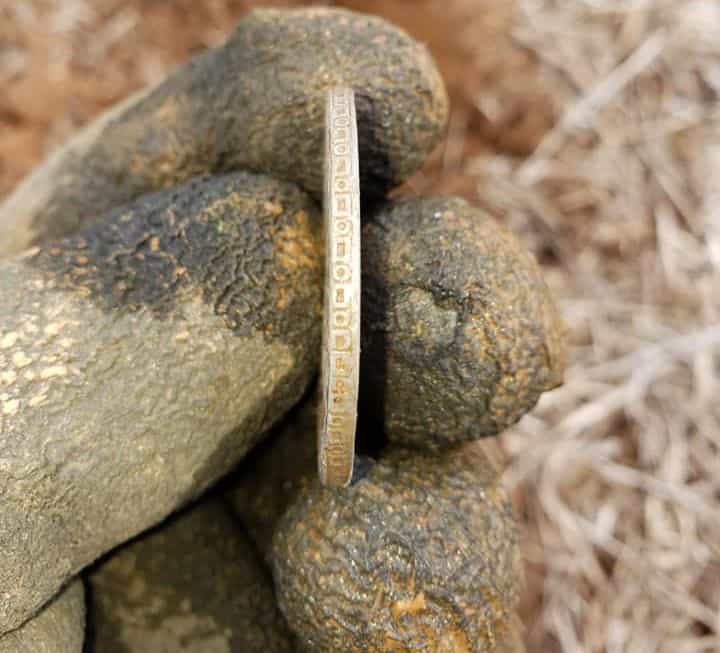
Finding a gold coin has a lot to do with you machine’s overall abilities, and, obviously, your luck as well.
The most common mistake that most hobbyist are guilty of while looking for a gold coin is that they assume that they need a ‘gold’ detector to be able to do so…
… In fact, Gold devices are not only costly, but they are also typically meant for nugget hunting (AKA looking for gold in its purest form).
The problem with gold nuggets or dust is that it requires some solid discrimination and sensitivity capabilities in order to see it, simply, because the ground that has gold is generally highly conductive … Otherwise, your machine will continually pick up false/confusing/misleading signals!
Gold coins, on the other hand, are significant in term of size and are not necessarily buried in mineralized soil! Not to mention, that Gold as a non-ferrous metal is highly conductive when it comes to electricity …
… Any Detector from the list I’ve list earlier in this Post, could pick it up just like any other kind of coin.
Where can you find a coin using your detection device?
Coin shooting is not only about your machine’s capabilities, it is also about the right locations you should opt for …
… The best location does not necessarily have to be the same for everyone. For example, if you are more interested in searching for old coins, then old trading markets and circuits or even old fields could all be a good place.
Some of the best locations for coins in general include:
- Beaches
- Showgrounds
- River beds
- Schools
- Churches
- Playgrounds
- Parks
- Camping grounds
- Old towns and shops that have closed down
Old maps could be a huge asset if you have your hands on one.
Tips on coin identification …
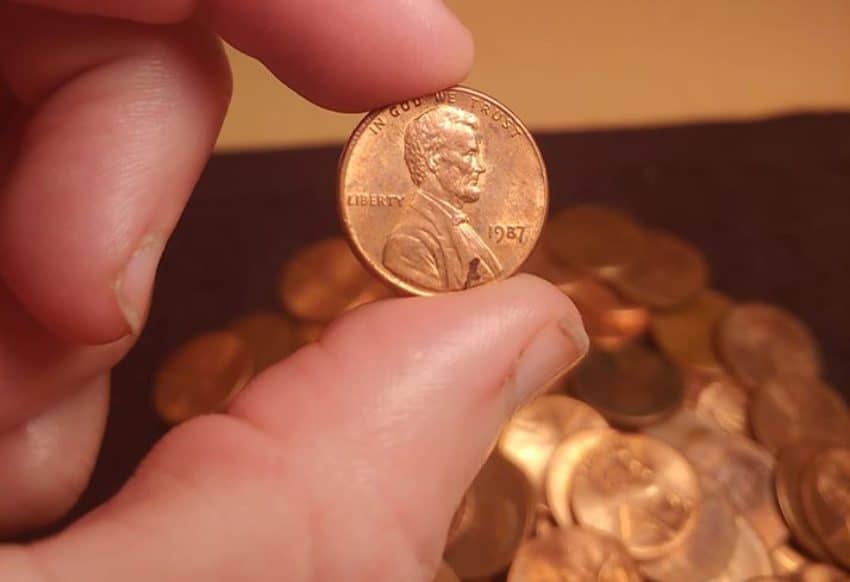
Coins have been in circulation since the 6th century BC. However, meal detecting has only now started finding many of these coins.
However, finding such coins is not enough, you still need to identify it quite accurately and recognize its value to a fair extent.
Below some helpful tips:
- First, look for a denomination: If the coin has a face value, then it is most likely a coin, and if there is no face value, then it might be a medallion instead.
- Next is to search for a date: Finding the date is the easiest way of identifying an old coin. For example, Spanish coins that have been minted since the early 17th century are some of the oldest to have dates.
- Note the coin’s shape: Most, but not all, coins are circular! Those that were minted before the late 1700s used to be irregular in shape. Other coins may be shaped as polygons, such as the 12-sided British three pence minted from 1937 to 1967.
- Note the coin’s diameter and its thickness: The diameter of the coin is a more reliable indicator of identifying it. Use a ruler to measure the diameter and measure the thickness with a caliper. Be careful not to damage the coin.
- Search for a mint mark: that is in the form of a letter or group of letters that indicates the city, country, or state it was minted in. The mint mark is usually on either the reverse or obverse side.
If you are not able to identify the coin, then you can consider consulting a reference catalog or search for an expert (Coin Collector or Coin Dealer) to help you out!
Tips on coin cleaning …
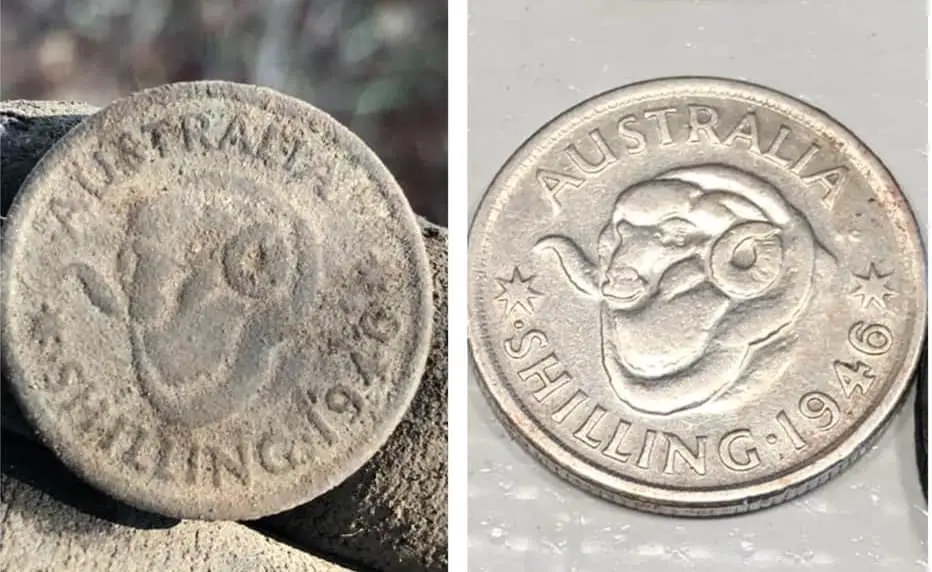
Now that you have found some coins, it is time to learn how to take care of them!
For old coin, you generally should leave them as they are. Though this might seem counterintuitive, yet the best course of action when you are dealing with dirty coins is to leave them as they are.
If they are in an overall good condition, then only a small amount of smudging or tarnish on the face will be worth more in the condition you have found them than if you clean them up.
Any type of cleaning of the coins can substantially decrease its monetary value, especially if you end up damaging the face or back during the cleaning process.
You should only clean the filthy or worthless coins. If you feel that they have little value and you are not planning on selling them to a collector or add them yourself to your collecting, then you can clean them for aesthetic reasons.
If you still have some doubts, I highly invite you to check this coin cleaning detailed guide! This should really help you on all the available possibilities.
How to Preserve found coins?
Preserving your coins is important to keep it in good condition for a very longue time! If you are a coin collector, then this is a must-have skill …
… The most important thing when you are looking to preserve them is to handle them properly. Indeed, the most common way that causes coins to get damaged is the improper handling.
Also, ensure that you hold the coin over a soft cloth. This way, if you drop the coin, it will not suffer any damage.
There are also many types of coin supplies that are available to allow you to preserve the coins properly. These include coin holders, folders, albums, gloves and soft pads (Check this Folder Here at Amazon).
You can use the items for storing your cons properly and preventing them from damage.
Countries known by rare coins
China is one country that is known for its rare coins. In fact, there have been many exceedingly rare Chinese coins hailing from the Ching Dynasty and other time periods.
There are many other countries that are known for that too, for example, the 1794 Flowing Hair Silver Dollar of the US.
In fact, the US is the home of many not only rare but also highly valuable coins worth thousands of bucks in change …
… Some of which remain missing even today and others are on display in various museums around the country.
Roman, Japanese and ancient Greek coins as well as many other rare ones can be found in many countries around the world.
Lastly, I highly recommend you to have a look at this guide to metal detect for rare coins! You will find it useful …
Little Tip: Using a metal detecting coin probe?
A coin probe helps you detect the coin in a more effective manner while ensuring that there is no damage caused to the surface of the coin.
With any type of coin you find, there is a risk of scratches and marks if the coins are proved. Coins that are located deeper than 3 inches should, in fact, not be probed at all, but ultimately it is a decision that the detectorist will need to make.
No matter what the material the coin probe is made out of, all of them help in pushing aside soil particles from the face of a buried coin during detecting.
Coins that are less than three inches can be easily located with a probe and popped out of the ground with the probe itself, without needing to dig further!
If your coin is close to the surface, then there is no need to waste your time by digging. It is better to use a probe, which is not only faster but also easier on the grass (Learn more about using your detector in the grass)
Conclusion
There are many types of finds that you can come up with, yet, coins are the ones that bring the most excitement for sure…
… Really hope, this short post helped answering most of your questions! I’ve tried to include all what you should know about the topic so you will get started on the right steps …
… Don’t forget, that the most important thing with this hobby is to have fun and enjoy the moment!
The good finds are inevitable for a fact!
